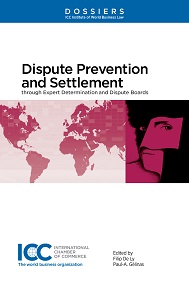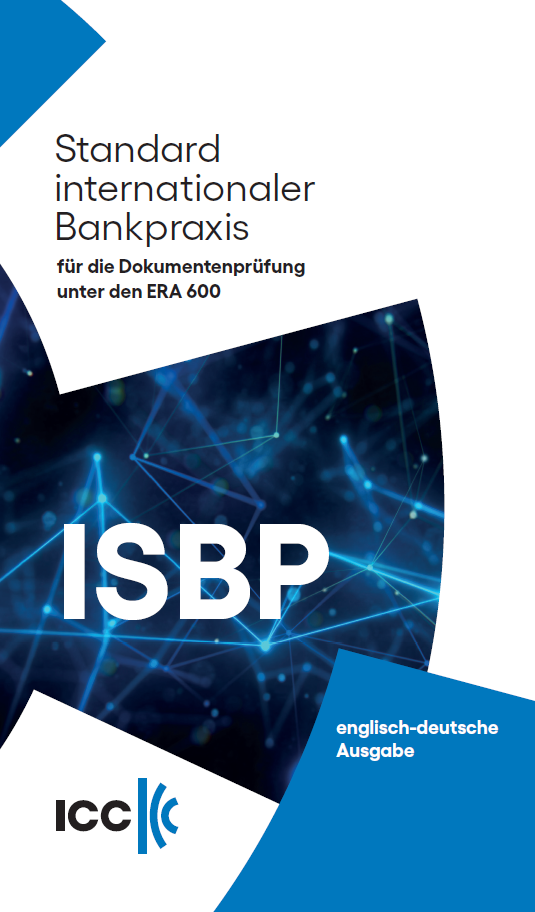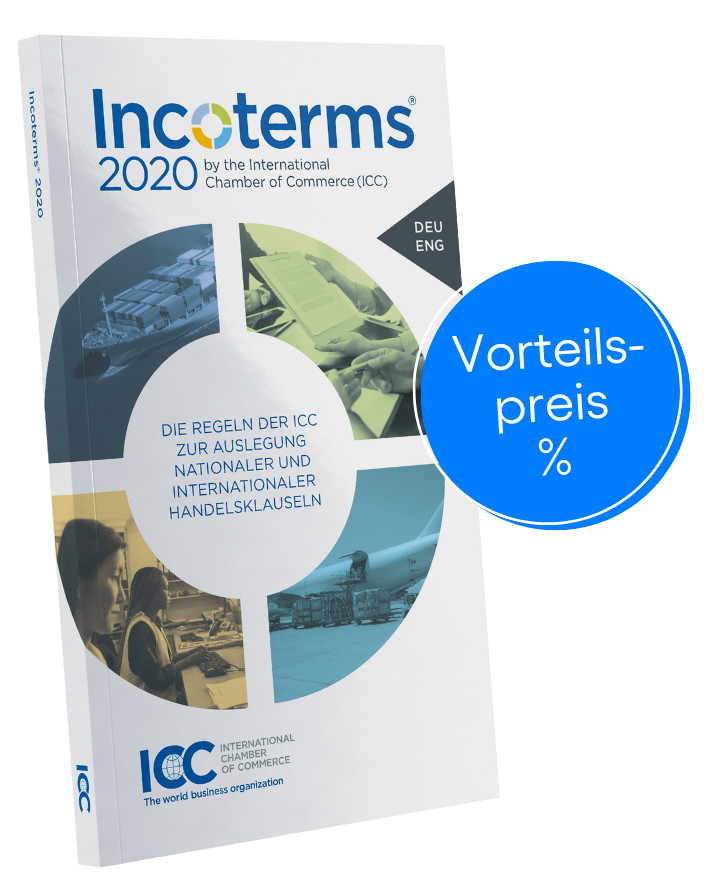The 20th Dossier of the ICC Institute of World Business Law contemplates how the pandemic has challenged procedural presumptions in international arbitration and paved the way for practitioners to rethink widely used case management techniques. The Dossier addresses how the main procedural features of international arbitration can be adapted to meet the needs of a given […]
€80,25
Euro zzgl. Versandkosten
The 20th Dossier of the ICC Institute of World Business Law contemplates how the pandemic has challenged procedural presumptions in international arbitration and paved the way for practitioners to rethink widely used case management techniques.
The Dossier addresses how the main procedural features of international arbitration can be adapted to meet the needs of a given case and in turn enhance efficiency of arbitration as a dispute resolution mechanism. The Dossier also explores the inherent powers of arbitral tribunals, including their role in promoting the use of technology and in proposing innovative approaches to structuring proceedings.
This edition of the Dossier examines current difficulties with document production with regard to the taking of evidence, proposing a technological update to the Redfern Schedule, and explaining the implications of using technology-assisted review (TAR) to comply with document production orders. Written by international practitioners, the Dossier provides insight into how the preparation of witness evidence might be improved to increase reliability and avoid duplication of submissions. In addition, it proposes new techniques for the management of expert evidence, designed to focus expert reports of like disciplines on duplicate/identical questions and data sets, to more easily identify points of agreement. The Dossier includes a chapter on the range of options available for arbitration hearings – in-person, hybrid and virtual – to tailor an effective hearing, based on specific circumstances of the case and on the designated seat of arbitration.
Inviting readers to rethink the paradigms of international arbitration, the Dossier presents pioneering ideas to shape the future of dispute resolution and better enable access to justice for everyone, everywhere.
| Code ISBN : | 978-92-842-0644-5 |
| Number of pages : | 231 |
| Language : | English |
Table of contents:
Chapter 1
Catherine Kessedjian…. 17
I. Introduction…. 17
II. Five transversal issues…. 19
(a) Should/could the tribunal act sua sponte?…. 19
(b) The president’s powers and the internal functioning of the tribunal…. 20
(c) Seeking the parties’ agreement or observations 21
(d) Should the tribunal justify its use of inherent powers?…. 23
(e) Are inherent powers discretionary?…. 23
III. Inherent powers linked to the management of the proceedings and evidence, or inward-looking powers…. 24
(a) Evidence…. 25
(b) Interim measures…. 26
(c) Professional ethical issues or disciplinary powers…. 26
(d) Main case management decisions…. 26
(e) Costs…. 28
IV. Inherent powers linked to the substance of the dispute or outward-looking powers…. 29
(a) Settlement facilitation…. 29
(b) Raising legal issues not raised by the parties…. 30
V. Conclusion…. 32
Chapter 2
David W. Rivkin…. 36
I. Introduction…. 36
II. The prevailing paradigm…. 37
III. A state of crisis…. 38
III.1. Pre-pandemic challenges to the prevailing paradigm…. 38
III.2. The pandemic as a catalyst for change…. 39
IV. Adoption of new paradigms?…. 41
IV.1. Low-hanging fruit…. 41
IV.2. A more radical proposal…. 42
V. Conclusion…. 48
Annex to Chapter 2: Town Elder arbitration rules (as of 20 January 2022)…. 51
Chapter 3
Gonzalo Stampa…. 57
I. Document production in international commercial arbitration…. 57
II. The Redfern schedule: uses and misuses in practice and proposals to improve its efficiency…. 62
III. Document production schedule…. 64
III.1. The general principles associated with the use of the DPS…. 65
III.2. The format of the DPS…. 66
IV. Conclusion…. 68
Annex 1 to Chapter 3: Bibliography (document references used in this chapter)…. 73
Annex 2 to Chapter 3: Procedure for analysis of DPS data…. 75
Annex 3 to Chapter 3: Sample DPS…. 76
Chapter 4
Kathryn Khamsi…. 87
I. Introduction…. 87
II. Ensuring compliance with document production orders: traditional paradigm…. 87
III. Technology-assisted review (TAR)…. 90
IV. Oversight of TAR…. 91
IV.1. Whether and when to use TAR?…. 92
IV.2. When is the TAR finished?…. 94
V. Conclusion…. 96
Chapter 5
Xavier Favre-Bulle and Christopher Newmark…. 100
I. Introduction: setting the scene…. 100
I.1. Using witness evidence: when and for what purpose?…. 100
I.2. Witnesses as supporting evidence: need for underlying factual allegations?…. 101
I.3. Mandatory limitations to collecting witness evidence?…. 102
II. Relevant soft law and studies…. 103
II.1. IBA (Rules of evidence; Guidelines on party representation); Prague Rules; ASA Toolbox; etc…… 103
II.2. Report on the accuracy of fact witness memory in international arbitration of the ICC Task Force maximising the probative value
of witness evidence…. 108
III. Fighting against abuses: when is witness evidence misused?…. 111
IV. How best to prepare, present and use witness evidence?…. 113
IV.1. Role of counsel when interviewing witnesses…. 113
IV.2. Written witness statements or not?…. 116
IV.3. Best practices for drafting witness statements…. 119
IV.4. Witness ‘preparation’ before the hearing…. 122
IV.5. Witness evidence at the hearing…. 124
V. Assessment and conclusions: the need for new rules (mandatory/soft law) and/or reinforced directions by arbitral tribunals?…. 128
V.1. Enhanced procedural directions for streamlining the witness evidentiary process?…. 128
V.2. Are the IBA Rules of evidence, Prague Rules and other soft law instruments sufficient? Is more needed?…. 130
Chapter 6
Doug Jones and Robert Turnbull…. 133
I. Introduction…. 133
II. What are witness statements?…. 134
III. What is holding back witness statements?…. 134
IV. What should a witness statement do?…. 135
V. How do we improve witness statements?…. 135
VI. What effect have the proposals had?…. 136
VII. Conclusion…. 137
Annex to Chapter 6: Draft procedural order dealing with Witnesses…. 139
Chapter 7
Doug Jones…. 142
I. Introduction…. 142
II. Who are the expert witnesses?…. 142
III. Methods of appointment…. 144
III.1.The meeting of traditions in international arbitration rules…. 144
IV. Comparative analysis…. 148
IV.1. Tribunal appointed experts…. 148
IV.2. Party appointed experts…. 155
V. Proposed solutions…. 161
V.1. Party appointed experts case management protocol…. 162
V.2. Post-hearing expert access protocol…. 165
VI. Conclusion…. 167
Annex 1 to Chapter 7: Example expert witness procedural order…. 172
Annex 2: Example expert access protocol (quantum experts)…. 174
Chapter 8
Stephanie Cohen and Jason Chan…. 176
I. Introduction…. 176
II. Virtual hearings: fit for crisis…. 177
III. Effectiveness for enforceability beyond crisis…. 178
IV. Shifting procedural norms…. 179
V. Traditional preferences for in-person hearings…. 181
VI. Effectiveness limited by technological competence…. 181
VII. Effectiveness in eliciting truthful testimony…. 182
VIII. Effectiveness for assessing demeanour and credibility…. 183
IX. Effectiveness of advocacy…. 185
X. Technological equality of arms…. 186
XI. Time zones…. 187
XII. Client engagement and settlement…. 188
XIII. Team communications and tribunal deliberations…. 188
XIV. Efficiency of time and costs…. 188
XV. Environmental impact…. 188
XVI. Conclusion…. 189
Chapter 9
Mouhamed Kebe…. 195
I. Introduction…. 195
II. Countries with pre-existing infrastructure for online hearings…. 195
III. Countries slow to implement virtual hearings…. 196
IV. A closer look at africa…. 197
V. Arbitration in the virtual world: greater room for flexibility and more benefits…. 198
VI. Adjustment to virtual arbitration in the context of africa…. 199
VI.1. West and Central Africa, including the OHADA zone…. 199
VI.2. East Africa…. 200
VI.3. North Africa…. 201
VI.4. Southern Africa…. 201
VI.5. Challenges particular to virtual hearings—technology, witnesses, and other challenges…. 202
VII. Conclusion…. 208
Concluding remarks
Patricia Peterson…. 213
I. A look to the past…. 213
II. A look at the present…. 215
III. The contributions in this dossier…. 215
IV. A look to the future…. 220
Biographies…. 224
Tableofcases…. 229
ICC dispute resolution publications…. 232
About ICC…. 238
Wie setzen sich die Preise bei Auslandslieferungen zusammen?
Für Produkte, die auf https://www.iccgermany.de/shop/ angeboten werden und an Bestimmungsorte innerhalb der Europäischen Union (EU) und Nordirland versandt werden, muss bei Verkäufen an Privatpersonen nach den innerhalb der EU geltenden Gesetzen und den innerhalb der einzelnen Mitgliedsstaaten (Bestimmungsland) variierenden Steuersätzen Umsatzsteuer berechnet werden. Die Höhe der zu berechnenden Umsatzsteuer richtet sich nach verschiedenen Faktoren, wie der Identität des Käufers (Unternehmer oder Privatperson), dem Wohnsitz des Käufers, der Art des gekauften Produktes (z.B. Buch, ebook, …) sowie dem Zielort, an den das Produkt versandt werden soll (Bestimmungsland).
Die Preise auf https://www.iccgermany.de/shop/ sind in Euro ausgewiesen und verstehen sich einschließlich deutscher Umsatzsteuer. Bitte beachten Sie, dass der Endpreis von der tatsächlichen Umsatzsteuer abhängig ist, die für Ihre Bestellung anfällt. Bei Bestellungen von Privatpersonen aus dem EU-Ausland wird die deutsche Umsatzsteuer abgezogen und die für das Bestimmungsland/Kundenland gültige Umsatzsteuer berechnet. Den Endpreis inklusive der für die bestellten Artikel gültigen Umsatzsteuersätze sehen Sie auf der letzten Seite des Bestellvorgangs.

Through Expert Determination and Dispute Boards Dossier XV of the...

Taschenbuch in englisch-deutscher...

Original Textfassung der Incoterms® 2020 der ICC in der...
Zur Überprüfung Ihrer Identität haben wir Ihnen eine E-Mail an geschickt.
Bitte klicken Sie auf den Bestätigungslink in der E-Mail, um Ihre Anmeldung abzuschließen.
Ups! Sie sind bereits für den Newsletter registriert.
